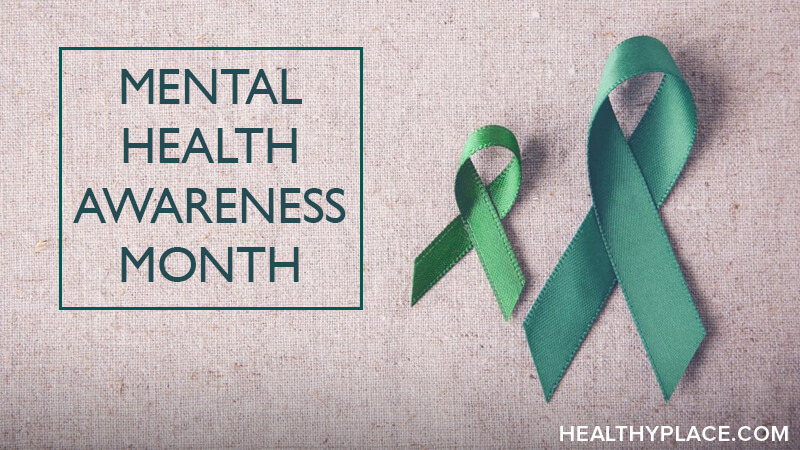The Truth About Anxiety for Mental Health Awareness Month

May is Mental Health Awareness Month, a month dedicated to highlighting mental health and mental health difficulties so that people understand how common it is to experience challenges and to provide a very realistic sense of hope. This message is crucial, for it reduces the unfortunate sense of shame and isolation that so many people feel when they suffer from anxiety or any other mental health challenge. In the spirit of Mental Health Awareness Month, here are some truths about anxiety.
Anxiety Facts for Mental Health Awareness Month
Knowing some truths about anxiety can help you realize that you aren't the only one who gets anxious sometimes or a lot of times. Also, knowing what anxiety is like can help you recognize it in yourself and know that there is nothing inherently wrong with you--that you are experiencing symptoms that have nothing to do with your character. (In fact, people with anxiety possess some strong character strengths.)
Anxiety Is Common: You Aren't Alone
You may be familiar with the statistics that illustrate just how common anxiety disorders are. Anxiety disorders are the most common of all mental health disorders, affecting over 40 million adults and about eight percent of kids and adolescents in any given year.1 Further, almost one-third of people experience an anxiety disorder at some point in their lifetime.2 These numbers refer to the number of people who have openly reported symptoms and have been diagnosed with any type of anxiety disorder. Many, many more people feel anxious but either don't report their symptoms or have symptoms that are bothersome but don't meet the criteria for an official anxiety disorder diagnosis.
Largely courtesy of the COVID-19 pandemic, the number of people experiencing some form of anxiety is skyrocketing. Pre-pandemic, about one in 10 people openly admitted feeling symptoms of anxiety or depression, but since the pandemic hit, four in 10 people have reported these symptoms--a jump from 10 percent to 40 percent.3 Again, these numbers reflect the number of people who were willing to openly share their experiences. It is highly likely that countless more are feeling anxious but remain in silence.
Anxiety Disrupts You and Your Life
Whether your symptoms are severe enough for an anxiety disorder diagnosis or they are vague and unsettling but allow you to function well, anxiety is disruptive. It impacts how we think, how we feel physically and emotionally, and how we act. The following list highlights some of the ways anxiety interferes in our lives. It's by no means a complete list, and everyone's experience with anxiety is unique. You might have your own challenges to add to the list. Use these items not to diagnose yourself but to begin to understand what you're thinking, feeling, and doing. With a deeper perspective, you can begin to take action to reduce anxiety.
In general, anxiety can make you:
- Doubt yourself
- Feel self-conscious
- Lose confidence in yourself and your abilities
- Feel uncomfortable around others, even family and friends
- Feel uncomfortable in your own skin
- Make you feel like you are jumping out of your skin
- Feel wired, restless, and agitated
- Feel fatigued, depleted of all energy
- Judge yourself negatively and harshly
- Feel alone even in a room full of people you "should" feel close to
- Ruminate over mistakes
- Worry about things that might not ever happen
- Think in absolute, black-and-white terms (something is all bad or all good, for example)
- Overgeneralize, believing that a bad situation represents your entire life
- Dwell on the negatives and ignore positives, including your own strengths
- Jump to conclusions, such as assuming what other people are thinking
- Catastrophize, making problems feel bigger and more daunting
- Impose harsh labels on yourself, others, or situations
- Give yourself rigid rules to live by ("shoulds" and "should nots")
- Personalize situations, blaming yourself unnecessarily for problems
- Feel irritable, impatient, or angry
- Lash out
- Afraid to speak up or stand up for yourself
- Experience great guilt over many otherwise tiny things
- Feel pain (headaches, joint pain, muscle tension)
- Sweat
- Shake
- Feel sick to your stomach and even vomit
- Experience a host of other digestive problems
- Feel dizzy
- Have difficulty swallowing
- Believe you are having a heart attack (It's estimated that over 1.2 million visits to the ER annually are anxiety-related.4)
- Withdraw from family and friends
- Quit jobs and hobbies
- Skip school or work
- Avoid pursuing your dreams and passions or anything you might enjoy
- Experience brain fog or general difficulty concentrating
- Lose a lot of sleep
- Miss much of your life because you are living in your mind, overthinking many things
Anxiety can disrupt every aspect of life. It can range from annoying to completely paralyzing and debilitating. Whatever your experience with it, know this: Anxiety can be treated. Next time, we'll look at the types of help available for anxiety.
Sources
- Anxiety and Depression Association of America, "What Is Anxiety?" Accessed May 5, 2021.
- Levey, D.K., "High Anxiety." Anxiety and Depression Association of America, Accessed May 5, 2021.
- Panchai, N. et al., "The Implications of COVID-19 for Mental Health and Substance Use." KFF, February 10, 2021.
- Dark, T. et al., "Epidemiology of Emergency Department Visits from Anxiety in the United States: 2009-2011." Psychiatric Services, March 1, 2017.
APA Reference
Peterson, T.
(2021, May 6). The Truth About Anxiety for Mental Health Awareness Month, HealthyPlace. Retrieved
on 2025, December 13 from https://www.healthyplace.com/blogs/anxiety-schmanxiety/2021/5/the-truth-about-anxiety-for-mental-health-awareness-month